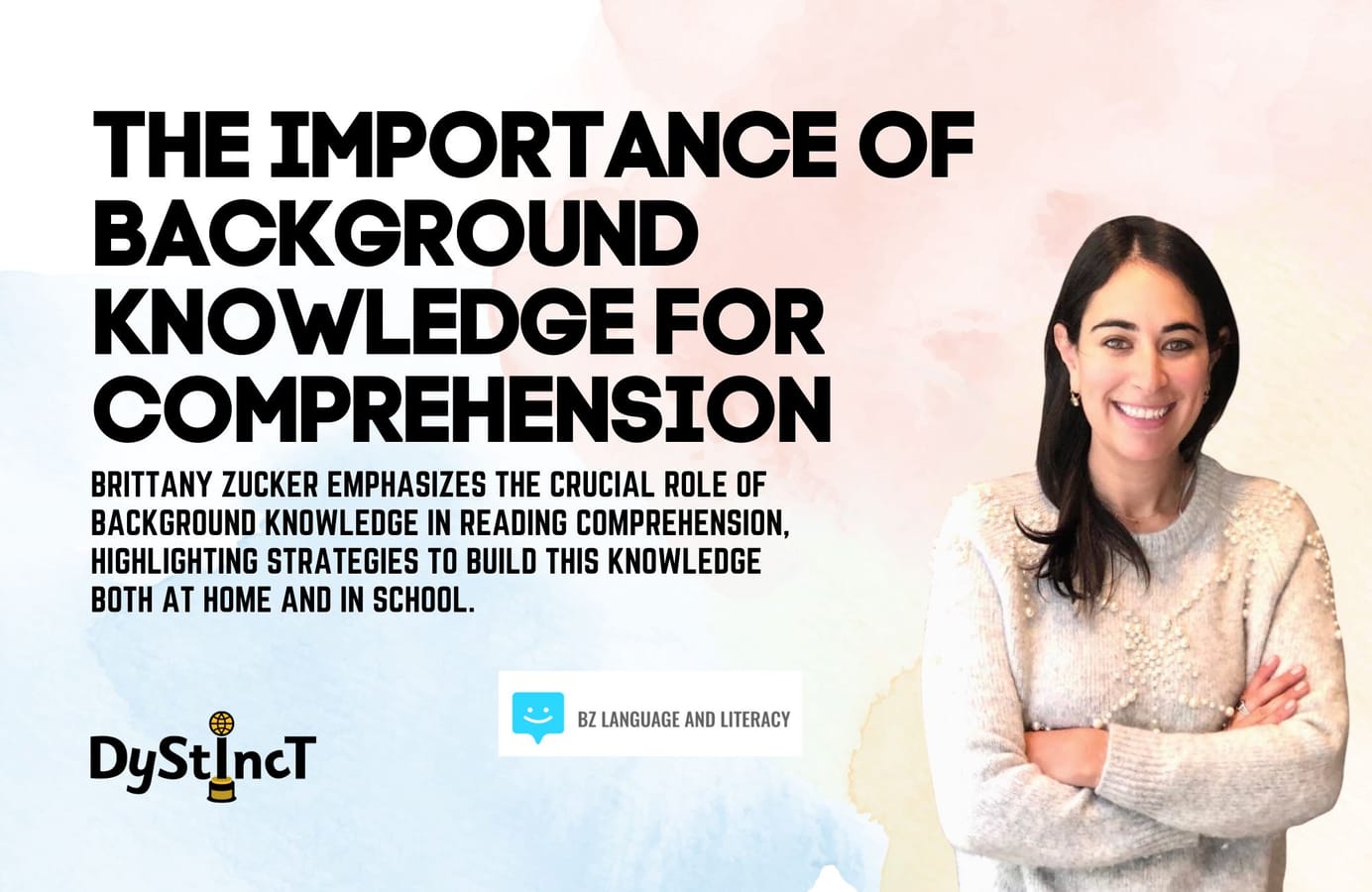
Issue 22: The Importance of Background Knowledge for Comprehension | Brittany Zucker
Brittany Zucker emphasizes the crucial role of background knowledge in reading comprehension, highlighting strategies to build this knowledge both at home and in school.
This post is for paying subscribers only
SubscribeAlready have an account? Log in


